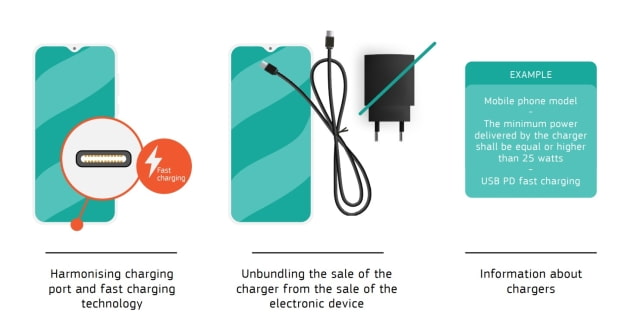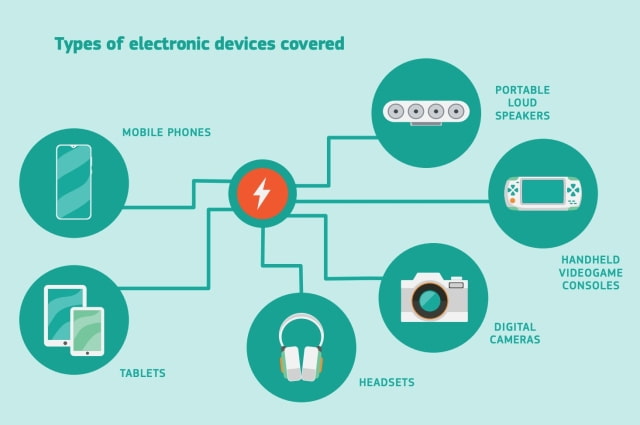EU Introduces Legislation to Force Common USB-C Charging Port for Electronic Devices

In a blow to Apple, the European Commission has announced that it is putting forward legislation to establish a common charging solution for electronic devices. If passed, this would force Apple to switch the iPhone from Lightning to USB-C, a change the company has resisted.
Years of working with industry on a voluntary approach already brought down the number of mobile phone chargers from 30 to 3 within the last decade, but could not deliver a complete solution. The Commission is now putting forward legislation to establish a common charging solution for all relevant devices. With today’s proposal for a revised Radio Equipment Directive, the charging port and fast charging technology will be harmonised: USB-C will become the standard port for all smartphones, tablets, cameras, headphones, portable speakers and handheld videogame consoles. In addition, the Commission proposes to unbundle the sale of chargers from the sale of electronic devices. This will improve consumers’ convenience and reduce the environmental footprint associated with the production and disposal of chargers, thereby supporting the green and digital transitions.
Margrethe Vestager, Executive Vice-President for a Europe fit for the Digital Age, said: “European consumers were frustrated long enough about incompatible chargers piling up in their drawers. We gave industry plenty of time to come up with their own solutions, now time is ripe for legislative action for a common charger. This is an important win for our consumers and environment and in line with our green and digital ambitions.”
Commissioner Thierry Breton, responsible for the Internal Market, said: “Chargers power all our most essential electronic devices. With more and more devices, more and more chargers are sold that are not interchangeable or not necessary. We are putting an end to that. With our proposal, European consumers will be able to use a single charger for all their portable electronics – an important step to increase convenience and reduce waste.”
Today, the Commission is proposing:
● A harmonised charging port for electronic devices: USB-C will be the common port. This will allow consumers to charge their devices with the same USB-C charger, regardless of the device brand.
● Harmonised fast charging technology will help prevent that different producers unjustifiably limit the charging speed and will help to ensure that charging speed is the same when using any compatible charger for a device.
● Unbundling the sale of a charger from the sale of the electronic device: consumers will be able to purchase a new electronic device without a new charger. This will limit the number of unwanted chargers purchased or left unused. Reducing production and disposal of new chargers is estimated to reduce the amount of electronic waste by almost a thousand tonnes’ yearly.
● Improved information for consumers: producers will need to provide relevant information about charging performance, including information on the power required by the device and if it supports fast charging. This will make it easier for consumers to see if their existing chargers meet the requirements of their new device or help them to select a compatible charger. Combined with the other measures, this would help consumers limit the number of new chargers purchased and help them save €250 million a year on unnecessary charger purchases.
The revised Radio Equipment Directive will now need to be adopted by the European Parliament and the Council by ordinary legislative procedure (co-decision). Once adopted, companies like Apple will have 24 months to make the switch to USB-C. The Commission says that full interoperability is required on both sides of the cable, meaning that a USB-C to Lightning cable is not acceptable.
Please download the iClarified app or follow iClarified on Twitter, Facebook, YouTube, and RSS for updates.







